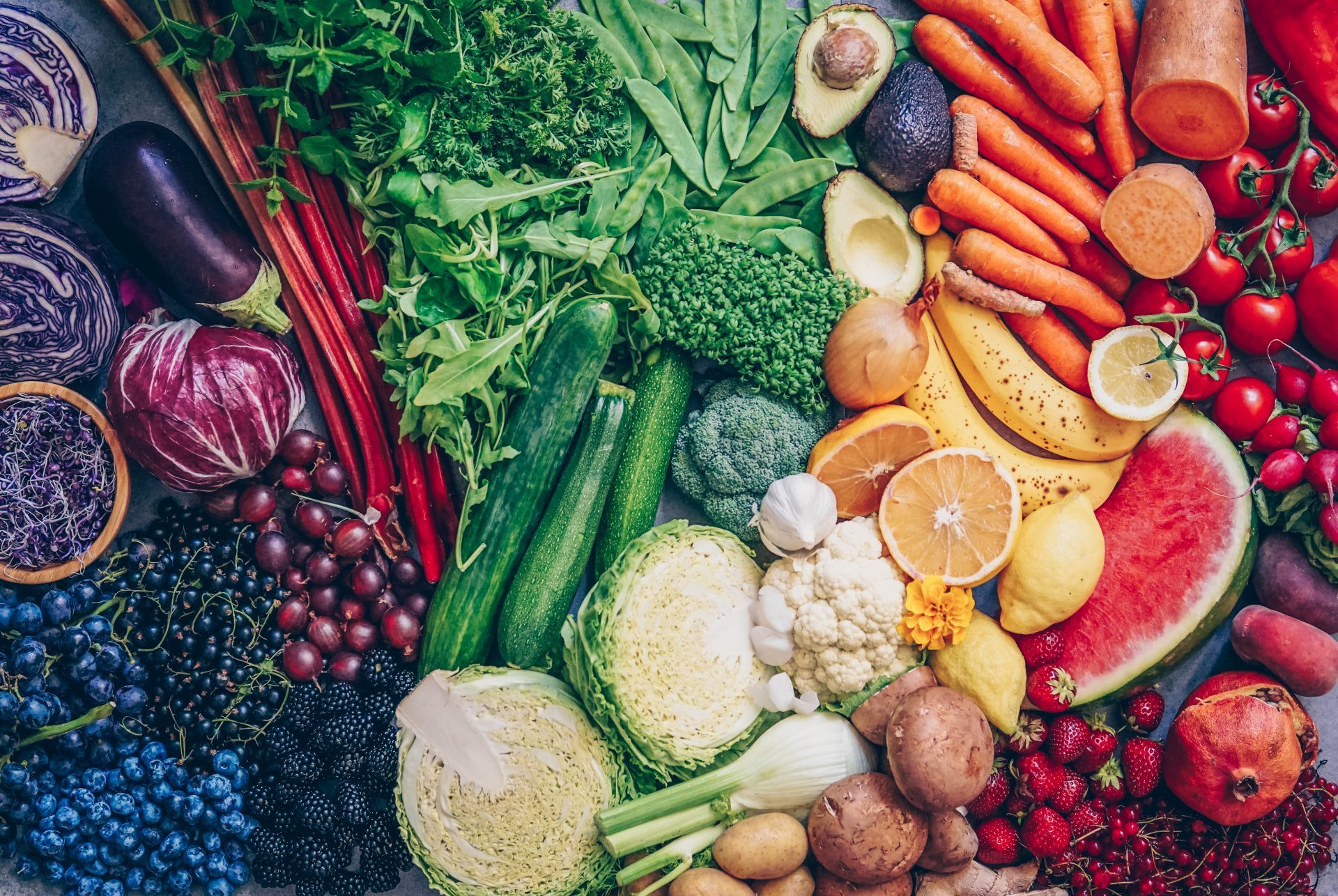Anyone who deals with plant-based nutrition will sooner or later stumble upon the topic of B12. But what is it actually? Why do we need this vitamin? Do vegans have to worry? I’ll tell you about that and more in this little post. Here comes my vitamin B12 fact check.

What is B12 actually?
Vitamin B12, also called cobalamin, is a vitamin of the “B” group. It is water-soluble and can be stored by our body – a property that otherwise only fat-soluble vitamins actually possess (you’ll learn more about these in a few weeks in the next blog). Here, 60% is stored in the liver and 30% in the muscles, and in the blood it is bound to a transport protein called transcobalamin. But step by step, because the absorption of B12 from our food is quite spectacular.
B12, which is coupled to proteins in food, is first broken down in the stomach and bound to haptocorrin to protect it from stomach acid. Then it moves on to the duodenum, where the environment is already much friendlier and this protection is no longer needed and is split off. But the B12 does not remain alone for long, but is bound by the intrinsic factor to prepare for absorption. There are then special receptors at a very specific location in the intestine that allow this complex to enter the intestinal cells. Once in the intestinal cells, the complex is then split again and the B12 is already recoupled, namely with the transcobalamin we know. From then on, it can finally enter the blood and be distributed throughout the body.
What do I need B12 for?
This wonderful vitamin fulfills countless functions in our body. Among other things, it often forms a team with folic acid. Together, they are essential for the division of blood cells. B12 is an important vitamin, especially for our fat metabolism. It plays a role in detoxification and mental development. It is also important for our happiness messenger, serotonin. In short: B12 is involved in quite a few processes in our body.
What are signs of a deficiency?
So, we now know that vitamin B12 is needed everywhere in our body. But what happens if we take in too little? Often we do not notice this for a long time, because our body has a large store for this vitamin. But when these stores are empty, it causes big problems. First of all: These complaints can be the result of an extreme B12 deficiency, but they can also be triggered by countless other things. So if you have such complaints, this is not a reason for self-diagnosis, but rather a sign to see a doctor as soon as possible. There are two typical and dreaded consequences of extreme B12 deficiency: pernicious anemia and funicular myelinosis.
The first is a specific form of red blood cell deficiency, in which the few remaining are particularly large and overloaded with iron due to a lack of B12, which is needed for cell division. Typical signs of anemia include decreased performance and pallor (iron deficiency anemia, however, causes the same symptoms and is much more common, but the cells will look different). In funicular myelinosis, specific pathways in the spinal cord that are important for sensitivity are damaged. This can lead to symmetrical, from the bottom to the top ascending insensitivity, especially of the legs.
However, since these symptoms appear extremely late, we should not wait for them, but pay attention to a sufficient supply.
Where is B12 found in food?
B12 is one of the potentially critical nutrients in a purely plant-based diet. This is because it is actually only produced by microorganisms, which is why foods like eggs and meat in particular are rich in vitamin B12. However, there are also some algae that produce B12, but how well these can be used for our physical purposes is still a bit controversial. Also, our gut bacteria provide a small amount of B12. Because of the complex absorption pathways, it is questionable whether absorption would then be possible at all. Apart from that, it would also not be sufficient. However, it is certain that there are countless possibilities to absorb B12 sufficiently, even as a vegan.
How to consume B12?
So you have probably already read on many vegan milk and yogurt alternatives the inscription +B12. In addition, there is the possibility to supplement B12 as drops or tablets. Whichever way, it is definitely recommended not to forget B12 in a purely plant-based diet. The ideal amount is of course dependent on countless individual factors (intake, need, consumption, medication …) as a guideline, healthy adults are recommended 4 micrograms daily. However, since the intake is not 1:1 when taken 1x daily, we need to supplement more. Details of the calculation you can follow in a video by Niko Rittenau or you simply orient yourself, if you are healthy, to his recommendation of >250 micrograms at 1x daily intake. For infants and children other recommendations apply. I link you the recommendations for the corresponding age groups.
Am I getting enough?
Whew, it’s all pretty complex. Have I now absorbed everything optimally for my body? With a purely plant-based diet, you should have your vitamin B12 level checked regularly; I do this about once a year. It is good to point out to the doctor that it is not so easy to determine B12 in the blood directly, because the value is cheaper but unfortunately quite inaccurate. It is better to determine the holo-transcobalamin, which is also the earliest marker that would indicate a deficiency.
Quite a lot. But don’t worry, it’s much less complicated than it sounds. I use Vivo* drops 1x a day, as you may know from my videos and stories (10% off your first Vivo order with Annelina10). Then I still let my family doctor 1x annually check whether everything fits and ready is the magic 😉
How are your experiences with B12, I’m curious what you report!




Leave a Reply